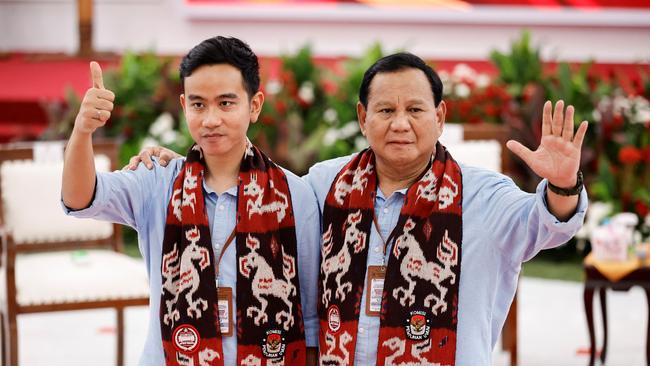
“Clobbering” the hardliners, as he once vowed to do to protect the Indonesian state, is not a guaranteed vote winner in the world’s most populous Muslim-majority nation, notwithstanding the relief most Indonesians felt at their de-fanging.
But as the country gears up for another bruising election season, and analysts tally the ledger of his nine-year presidency – new roads and ports, emerging new capital in Kalimantan, steady economic management – Widodo’s unsung legacy is that he faced down a sectarian crisis and emerged a stronger leader.
“The thing people need to realise about Jokowi (as the President is known) is what a tough, resilient character he is,” Australian National University emeritus professor Greg Fealy says. “He has been so good at getting his way and the Islamists have been a case in point. He never claims credit for it but you know it would not have happened without him.”
That Jokowi successfully stifled hardline Islam’s growing influence in Indonesia has all but guaranteed a more peaceful election, even if how he did so has had a corrosive impact on the sprawling democracy on Australia’s doorstep.
The mobilisation of Islamists in the 2017 Jakarta governor election – close to a million people took to the streets to demand the blasphemy prosecution of incumbent Chinese Christian governor Ahok – forced Jokowi into “an increasingly authoritarian turn”, Southeast Asia analyst Ben Bland wrote in his 2020 biography Man of Contradictions.
Anies Baswedan won that election, partly by pandering to hardliners who continue to support him. He is now a presidential candidate in next February’s contest.
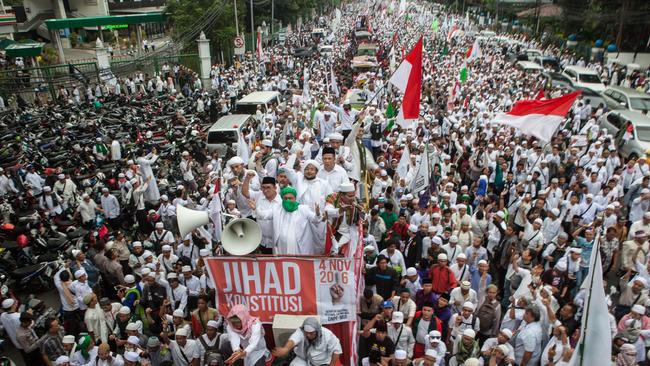
Many of those from the hardliners’ 212 Movement (named for the huge rally on December 2, 2016) went on to support current Defence Minister and third-time presidential hopeful Prabowo Subianto’s losing 2019 election bid. Prabowo is the 2024 poll frontrunner.
The pro-caliphate Hizbut Tahrir Indonesia and thuggish Islamic Defenders Front were outlawed, some leaders charged and a few members killed by police.
Moderate Islamic groups were lavishly funded to go after hardliners online. Civil servants, teachers and students suspected of hardline views were placed under surveillance.
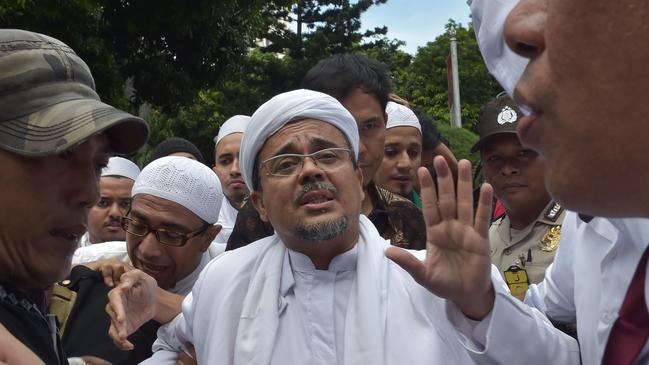
ANU PhD researcher Nava Nuraniyah says state repression has successfully kept a lid on Islamists, and the three 2024 presidential candidates – former central Java governor Ganjar Pranowo, Anies and Prabowo – are the beneficiaries of Jokowi’s crackdown.
In a recent paper for the Institute for Policy Analysis of Conflict, Nuraniyah concludes Indonesia’s Islamists do not have the “strength, influence or inclination to affect the 2024 election at a national level”. Yet, she cautions, they are far from a spent force. Even the banned groups still operate charities, schools and businesses, and some have re-emerged recently to stage protests over Gaza.
With their “unmatched perseverance, resourcefulness and optimism in the face of adversity”, she says, they could again rise up to challenge the state under a more compliant president.
That Indonesia’s presidential and legislative elections will be held next February 14 – Valentine’s Day – is an insider joke given there is no love lost between candidates vying for the presidency of the world’s third largest democracy.
Jokowi won two presidential contests against Prabowo, despite the former son-in-law of military dictator Suharto and Special Forces commander with a patchy human rights record leaving few dirty tricks in the bag in 2014 or 2019. Jokowi was tagged a communist, ethnic Chinese and a Christian. None of it sufficiently dented the image of the former Jakarta governor who started out as a furniture manufacturer before entering politics as mayor of his home town Solo, in central Java.
The fact he later drew Prabowo into his “big tent” ruling coalition – commanding 80 per cent of parliament’s vote – was a testament to his consensus leadership or shrewd political gamesmanship, depending on who you speak to.
But his reputation as a man of the people has been battered in recent years by accusations of having “maximised the use of authoritarian infrastructure” to build an imperial presidency.
“He weakened institutions that were intended to serve as checks on his executive power, such as the Corruption Eradication Commission, and employed the police and legal authorities to silence critics,” Made Supriatma, visiting fellow at Singapore’s ISEAS-Yusof Ishak Institute, recently wrote in an unflattering summation on the East Asia Forum blog.
“He silenced opposition voices, especially those from conservative Islamic circles” who – like it or not – are entitled to a voice in a democracy. “The extensive use of the Internet and Electronic Transactions Law (also) instilled a climate of fear among civil society,” Made added.
If those actions upset Jokowi’s former liberal progressive supporters, most Indonesians were prepared to overlook them to be rid of stifling religious enforcers.
But public tolerance has been stretched by subsequent attempts to hold on to power, first by having close associates explore the possibility of a constitutionally barred third term, then an election delay, and finally last month through a legal amendment to election eligibility criteria enabling his son Gibran Rakabuming Raka to run for vice-president alongside Prabowo.
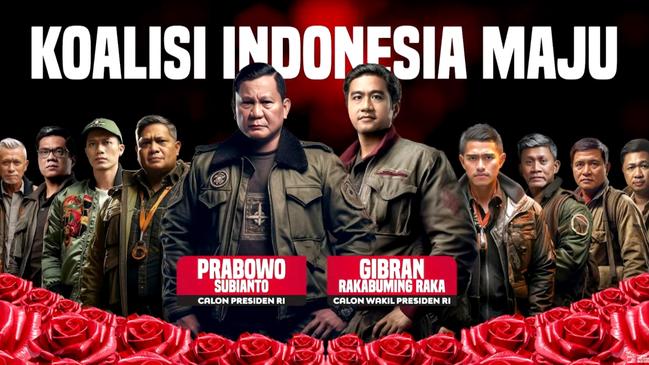
The fact the Constitutional Court ruling – allowing candidates under 40 to contest presidential elections if they had held an elected position – was overseen by Jokowi’s brother-in-law, the court’s Chief Justice, who refused to recuse himself in a tight 5-4 decision, only added to the controversy.
Gibran’s selection as a vice-presidential candidate has raised uncomfortable questions about the role Jokowi played in catapulting his 36-year-old son (current mayor of Solo) into the election race.
Critics have accused the court of legalising dynastic politics. “Reject Dynastic Politics” posters have cropped up across the country. It all seems a far cry from the leader who once declared that “becoming president does not mean channelling my power to my children”.
Jokowi insists he played no part in his son’s decision or the court ruling. Over lunch on Monday he assured all three presidential candidates of his neutrality, a guarantee critics say stretches credulity now his own son is in the race.
“Gibran would never be a deputy presidential candidate were it not that he is his father’s son,” Fealy says.
“Jokowi has used his office to help … orchestrate this situation where Gibran is now the running mate for the leading candidate and that is an abuse of the democratic process. What he’s done to democracy in Indonesia – particularly to vouchsafe the advancement of his family – has been very harmful because it has created precedents others can now use.”
That the outgoing President should seek to build a dynasty should come as no shock in Southeast Asia where political families – The Philippines’ Marcoses, Cambodia’s Huns and Singapore’s Lees – prevail.
Five of six former Indonesian presidents since independence also have had children follow them into politics, writes Bland, though none with any great success.
The Indonesia that 25 years ago threw out the Suharto regime has shown no great enthusiasm for birthright political leaders, though Gibran will be a good test of that.
Indonesian pollster and political science lecturer Djayadi Hanan says it is not the dynasty itself but the way Jokowi has gone about building it that is the problem, raising questions about the potential for state apparatus to be used in support of Team Prabowo.
“There are 270 governors and local district heads directly appointed by Jokowi. They’re all soldiers of Jokowi,” Hanan, executive director of Lembaga Survei Indonesia, tells Inquirer. “He has proven his willingness to use the Constitutional Court through his own brother-in-law. Why not other apparatus directly under him?
“This did not start with the presidential election candidacy but back in 2020 when he supported his son-in-law (Bobby Nasution) for mayor of Medan and Gibran as mayor of Solo.”
In September, Jokowi’s youngest son, Kaesang, was also appointed chairman of the youth-based Indonesian Solidarity Party (PSI), a small support party being groomed as an alternative post-election vehicle for an outgoing President who lacks a party of his own.
Jokowi’s sometimes testy relationship with the Indonesian Democratic Party of Struggle (PDIP) that backed his presidency has hit a nadir since Gibran’s candidacy on October 25.
The PDIP’s own presidential candidate, Ganjar, was hand-picked by party matriarch and former president Megawati Sukarnoputri, daughter of independence leader Sukarno. Her displeasure has been made clear through party officials who have begun briefing against Jokowi.
“We loved and granted such great privilege to President Jokowi and his family, but we were left behind,” PDIP secretary-general Hasto Kristiyanto lamented this week. “What has happened with the entire process of Gibran‘s candidacy is political disobedience against the constitution and the Indonesian people … combined with legal engineering at the Constitutional Court.”
And yet it seems you cannot go anywhere in Jakarta without bumping into an election image of the Widodo clan.
Whether it is Gibran and Prabowo in aviator jackets, Kaesang inexplicably holding a teddy bear or with a smiling Jokowi under the caption “Generation Optimism”, Indonesia’s first family is facing down the criticism and leaning heavily on Jokowi’s popularity to promote its future dynasty.
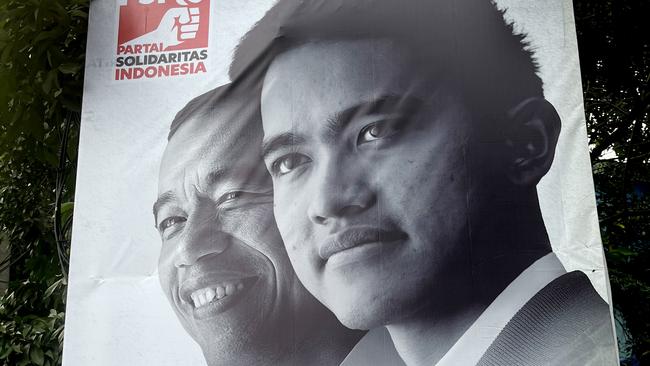
Hanan suspects the cracks are widening in Jokowi’s carefully maintained image, and soon could chip away at his stratospheric 81 per cent approval rating.
That could be a problem given “all Gibran brings to the Prabowo ticket is Jokowi”, though it is too early to say how his candidacy will affect polling numbers.
“The backlash (over Gibran) could still be coming though it could go both ways,” says Hanan.
More diehard Jokowi voters will gravitate towards Prabowo and Gibran, while Prabowo supporters who don’t like what happened will shift to Anies’ “reform” campaign.
Most polls have Prabowo leading with 36 per cent support, Ganjar a few points behind and Anies trailing at 23 per cent. That has barely changed since the candidates announced running mates last month.
Barring drastic realignments, Anies will be knocked out in the February vote and Prabowo and Ganjar will face a June second-round vote.
Pollsters had assumed Prabowo would win that with the backing of Anies supporters – anti-Jokowi elements mostly, including conservative and hardline Muslims who won’t vote for Ganjar out of antipathy to the PDIP, which helped drive the Islamist crackdown. But Gibran’s entry is set to split the Anies vote. Some will go to Ganjar on the strength of his running mate, cabinet minister and Islamic scholar Mahfud MD.
However you slice it, Indonesia’s next president may need the support of the Islamist minority to get over the line – a political debt that could come back to haunt him.
“They won’t be kingmakers but they have the potential to make a difference in a second round,” Nuraniyah says.
“They are all still there, amassing resources and recruits. They’re lying low for now but they’re developing their networks and spreading their ideas.”


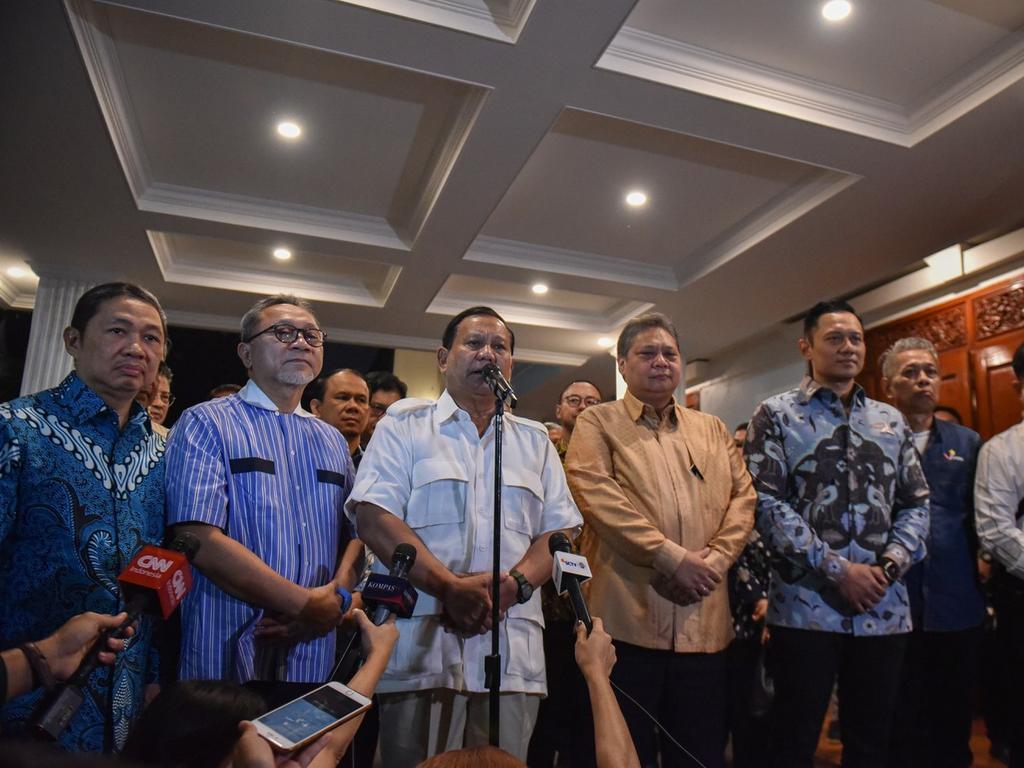
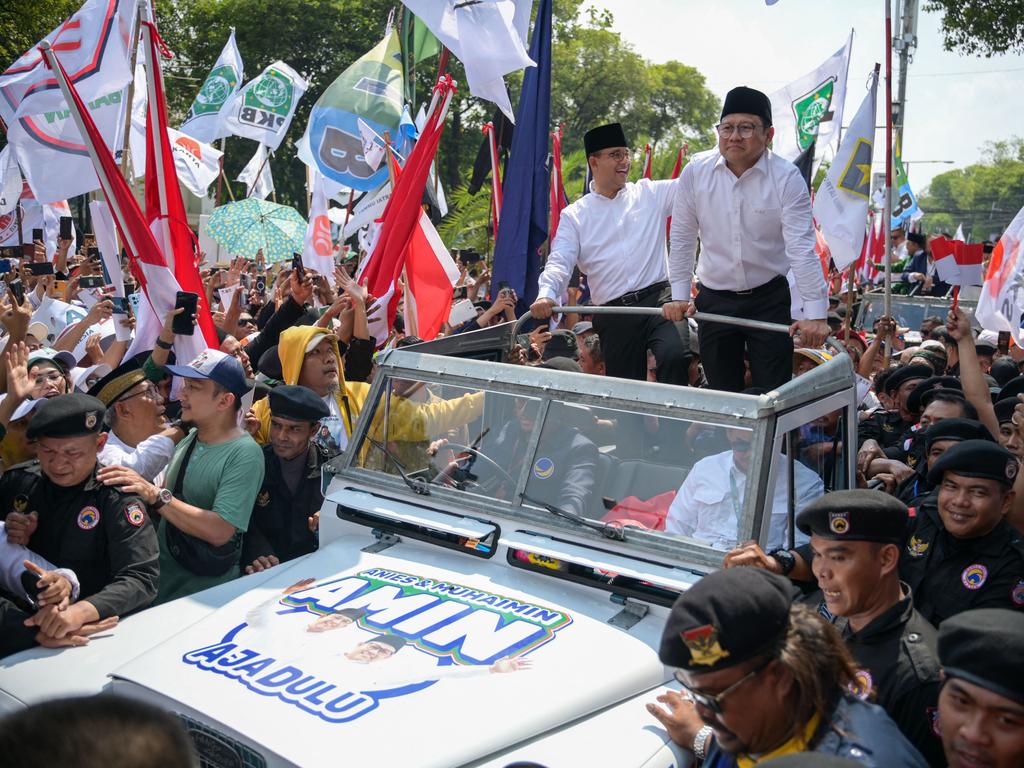



Of Joko Widodo’s many achievements as outgoing President of Indonesia – infrastructure builder, consensus leader, man of the people – the one you won’t hear spoken of publicly is how he cracked down on Islamists.